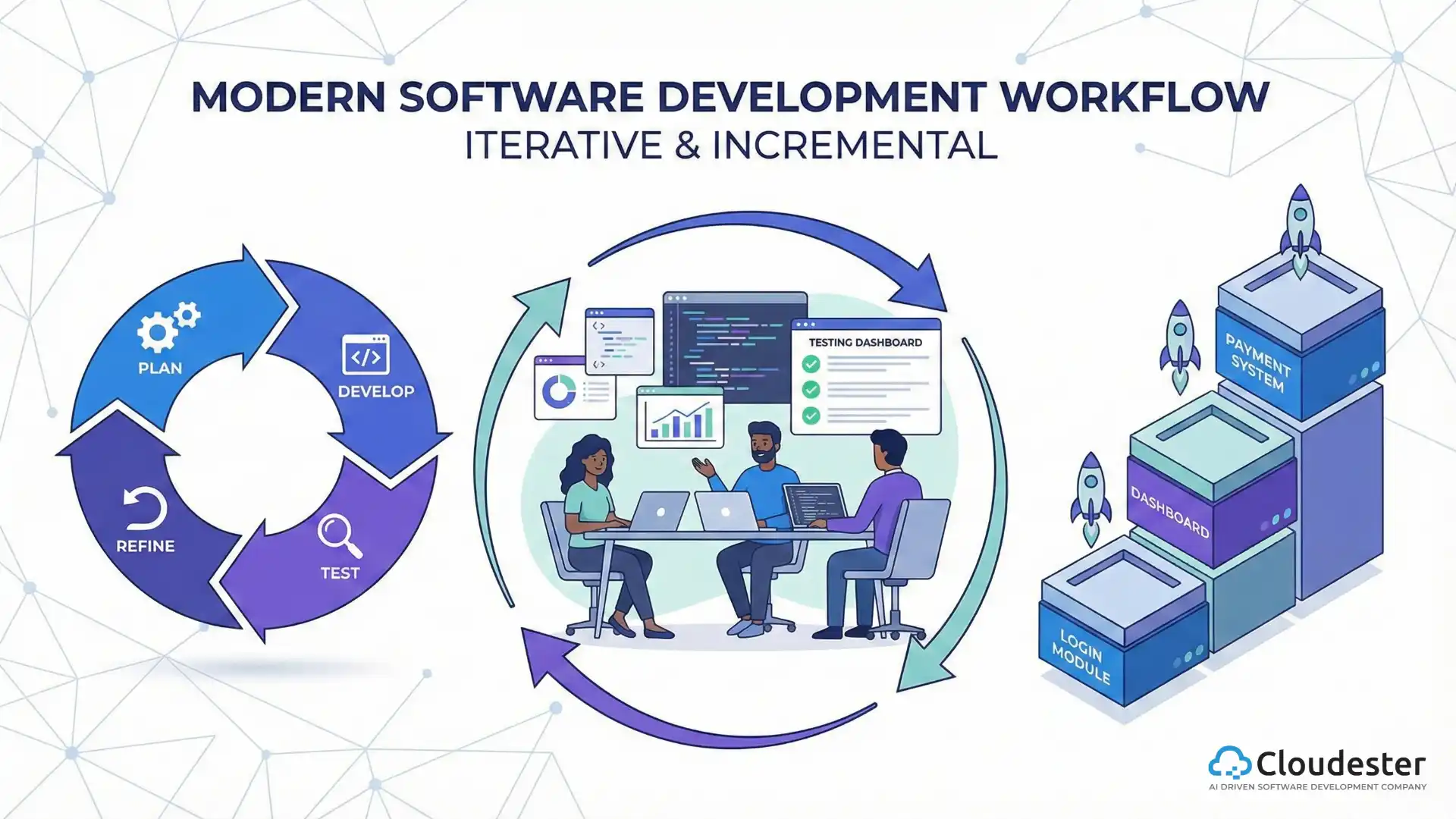The Power of B2B Software Development, Unfolding the Business Growth!

B2B software development has become one of the strongest drivers of modern business growth. Companies across industries use custom digital solutions to simplify workflows, elevate customer experiences, and support long term scalability. As competition rises and technology advances, organizations that invest in tailored software gain clear advantages in efficiency, innovation, and market positioning.
In a fast moving digital world, off the shelf systems rarely match every business need. Therefore, building software designed around real processes and goals helps teams operate with more precision and delivers measurable performance improvements. When you approach B2B development strategically, you turn technology into a growth engine, not just a technical asset.
How B2B Software Development Fuels Business Growth
Strong business growth comes from serving customers better and running operations more effectively. In B2B markets, those customers are other businesses, and their expectations are high. They need reliability, speed, visibility, compliance, and seamless communication.
Custom software plays a key role by aligning technology with unique workflows and industry requirements. As a result, you gain control, flexibility, and capability that generic tools cannot provide.
1. Research and analysis to define real needs
Growth starts with understanding your target audience. By conducting deep research and speaking directly to key users, you uncover pain points that standard software often ignores. This insight helps shape features that solve specific problems and create immediate value. Furthermore, it ensures that every development decision connects back to real business outcomes.
2. User centric design for frictionless experiences
User experience strongly influences adoption and satisfaction. When software feels intuitive, navigation becomes easier and efficiency improves. In B2B environments, where multiple departments rely on the same platform, a clear and responsive interface reduces learning time and drives productivity. In addition, mobile friendly design keeps teams connected wherever they work.
Custom AI Software Development Solution For Enterprises
3. Customization that fits your business, not the other way around
B2B organizations often operate with unique rules, workflows, compliance needs, and internal processes. Custom software adapts to those realities. Instead of forcing your team to change how they work, the system supports what already functions well and improves what needs refinement. In turn, this increases productivity and eliminates unnecessary manual steps.
4. Strong functionality to handle complex operations
Growth requires systems that scale. Tailored platforms provide advanced features that align with your industry. These may include automation, permissions management, data integrations, advanced reporting, and intelligent workflows. As your business evolves, your software evolves alongside you.
5. Security that protects company and client data
Security is essential in B2B environments. When handling confidential business data, your software must meet high security standards. Custom systems allow you to implement modern encryption, compliance features, and controlled access. As a result, clients trust your platform and remain confident in how their data is managed.
6. Long term support and partnership
Reliable ongoing support ensures consistent performance. Quality software teams provide maintenance, updates, and proactive monitoring so your system remains secure and efficient. In addition, responsive support builds trust with users and strengthens your competitive advantage.
From Idea to Launch: How B2B Software Comes to Life
Turning a business concept into a working software product requires structure, feedback, and disciplined execution. Below is a clear step by step process:
- Identify the business challenge: Understand the core problem and gather insights from real users and stakeholders.
- Define scope and goals: Outline key features, technology needs, timelines, and success criteria before development begins.
- Design user flows and prototypes: Build visual layouts and user journeys. Test with real users to confirm functionality.
- Develop the product: Build backend and frontend features using clean code, secure architecture, and scalable practices.
- Integrate tools and APIs: Connect payment systems, data sources, third party platforms, and automation tools.
- Conduct testing: Perform usability testing, performance checks, and security review before release.
- Deploy and go live: Launch the software to users, ensure setup and onboarding, and track early feedback.
- Maintain and improve: Monitor performance, fix bugs, release updates, and enhance features as needs grow.
Through this structured method, you reduce risks, speed up delivery, and increase adoption across the business.
Is It Time to Build Custom B2B Software?
If your current tools create workflow gaps, limit growth, or fail to support customers effectively, custom development becomes a strategic investment. Tailored platforms increase speed, reduce errors, integrate easily with internal systems, and improve team performance.
With the right partner, you gain more than code. You gain guidance, industry knowledge, and long term support. A development partner listens, collaborates, and builds technology that strengthens your business at every stage.
To explore tailored custom software solutions, or to streamline operations with secure and scalable platforms, reach out and begin planning your next digital step.









